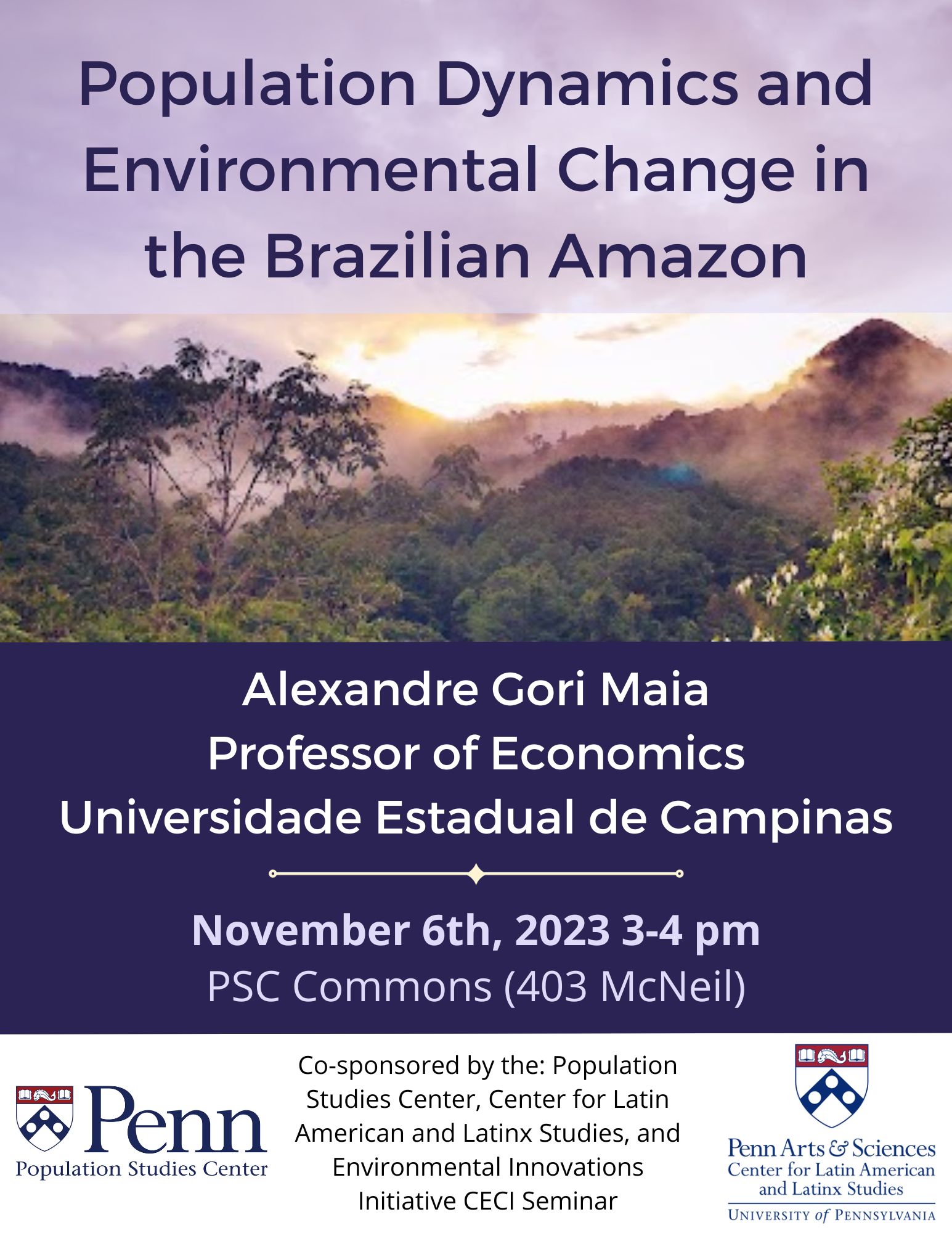Alexandre Gori Maia: Population Dynamics and Environmental Change in the Brazilian Amazon
The research presents three studies analyzing the links between population dynamics and environmental change in the Brazilian Amazon.
Alexandre Gori Maia is a Professor of Economics at the Universidade Estadual de Campinas (Brazil). He works with applied econometrics and development economics, focusing on the impacts of social and environmental change in Brazil.

The research presents three studies analyzing the links between population dynamics and environmental change in the Brazilian Amazon. Deforestation has been the main factor responsible for greenhouse gas emissions in Brazil. The first study investigates how weak institutions stimulate deforestation in the Amazon. Using a unique dataset with farm-level information for the entire population of private properties in the state of Acre, the study shows how farmers subject to land insecurity are more likely to deforest and less likely to comply with the Environmental Law. The second study investigates the effectiveness of individual land titling, one of the main policies to curb deforestation in the Amazon. Results highlight that land titling per se cannot control deforestation and is only effective when farmers are subjected to land security. Finally, we investigate the impacts of environmental change, including deforestation and climate change, on outmigration from the Amazon. The study shows how outmigration is mainly associated with prior levels of deforestation, which is partially explained by the life cycle channel: a younger generation leaving the old frontier of colonization to an aging population. Together, these studies point to a vicious cycle of demographic dynamics in the Amazon, with increasing pressure over additional lands and weak institutions leading to outmigration and deforestation.